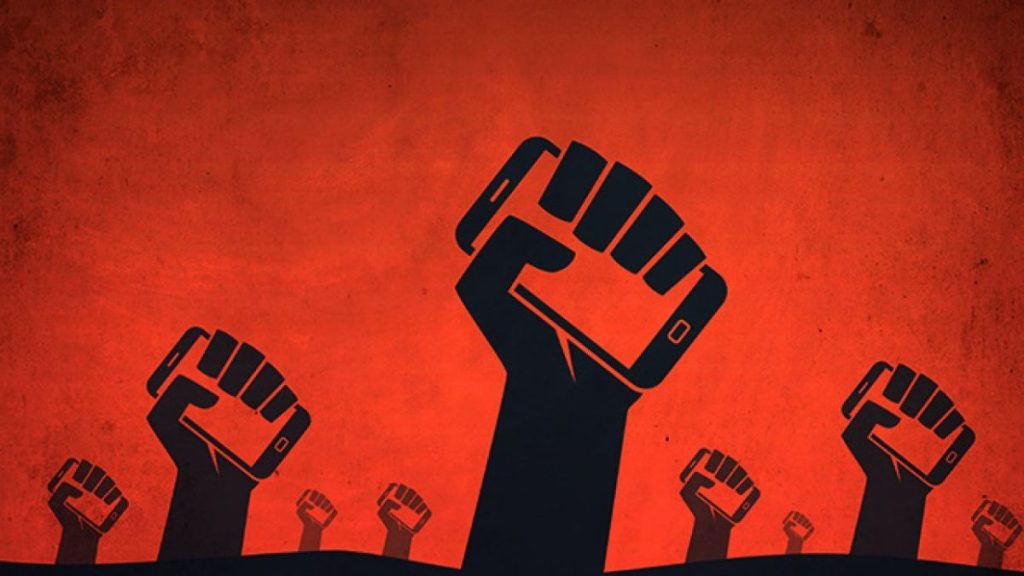Highlights from the East Africa IGF
The recent wave of protests across East Africa, from Kenya to Uganda and Tanzania, has shone a spotlight on a troubling trend: the rise of “devolved impunity”—the arbitrary arrest, abduction, and even murder of digital activists and bloggers occurring not only at the national level but increasingly at county and local government levels.
The world has witnessed massive protests across the world in 2024, all of which have exemplified the power of online organizing and digital activism. Platforms like Twitter, WhatsApp, and TikTok have played crucial roles in mobilizing citizens, debunking disinformation, and crowdsourcing aid for protesters. During the Kenyan anti-Finance Bill 2024 protests, Kenyans actively used social media to create awareness and increase the impact of the physical protests. According to a Nendo social media analytics report, videos with #RejectFinanceBill2024 on TikTok reached over 500 million views. On X, the #RejectFinanceBill2024 hashtag had over 17 million mentions, #OccupyParliament had over 1 million mentions, and #RutoMustGo had over 6 million. This campaign which lasted between July and August had the most influential visibility in Kenyan history and the three hashtags even appeared on the trending section of X globally.
However, the risks associated with the increasing popularity of digital activism are grave. Internet shutdowns, surveillance, and coordinated disinformation campaigns have become the new norm and have severely undermined protesters’ ability to communicate, coordinate, and ensure their safety. A UNESCO report on the safety of journalists and the danger of impunity showed that there is an increasingly alarming trend of journalists becoming less safe in countries without armed conflict compared to those in armed conflict countries. The story is no different in neighboring countries Uganda where arbitrary crackdowns and arrests of activists have become the new normal while Tanzania continues to enforce digital bans, particularly targeting social media platforms.
In this context, it is particularly alarming that the Kenyan government has rapidly become intolerant of political dissent and has enforced punitive measures to curb online activism. According to Amnesty reports, in 2023, there were 136 extrajudicial executions in Kenya and most victims died while still in police custody or after being last seen in police custody. During the anti-Finance Bill 2024 and anti-government protests of June-August 2024, Kenya witnessed forced abductions, mass arrests, and death of protesters and digital activists. To date, Amnesty International has been able to verify the death of at least 50 individuals and 413 severe injuries resulting from police brutality.
2023 saw the gruesome murder of former Meru blogger Benard Muthiani, also known as Sniper which was later revealed to have occurred at the county level allegedly by individuals connected to the local governor’s office. This “devolution of impunity” suggests that digital activists and independent voices are threatened not only by central governments but also by an expanding web of local power brokers.
A recent discussion during the East Africa Internet Governance Forum (IGF), held in Kampala on September 11-12, underscored the urgent need to address these issues. Activists and experts convened to explore the implications of digital repression and the role of online platforms in protecting freedom of expression. The forum highlighted the critical importance of collaborative efforts to document abuses and advocate for the rights of digital activists across the region. It is evident that there is an urgent need to document incidents to influence policy changes that can protect the constitutional rights of activists and bloggers. However, the lack of funding and resources for this critical work poses a significant challenge. Furthermore, activists, even those employed by prominent tech firms, are often torn between their roles as employees and their identities as passionate activists. which further limits their impact.
Ultimately, addressing this rise of “devolved impunity” requires tackling deeper, systemic issues, including the concentration of power, erosion of democratic norms, and lack of meaningful accountability mechanisms. Regional bodies and international human rights organizations must step up pressure on governments in the global south to uphold the rights of digital activists. Finally, now more than ever, local civil society must remain united and commit to bold, innovative strategies to ensure the digital and physical safety of digital activists, journalists, social justice organizations, and human rights defenders, among others.

